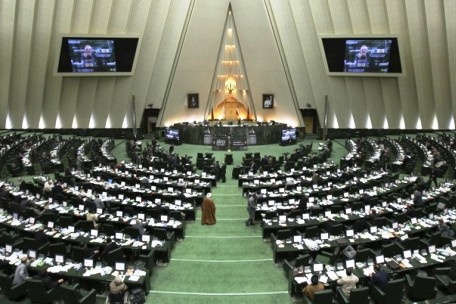Downgrading Ties with London: What Are the Consequences

IRD: Scaling back relations with Britain was finally approved by the parliament after several days of speculation, the downgrading embodied in a bill giving the government a two-week deadline to enforce the decision. In an interview with European affairs analyst Saeid Khalouzadeh, Iranian Diplomacy probes the consequences of Majles’ decision:
IRD: How important are relations with London for Tehran, and considering the developments of recent years in the Iran-Britain relationship-- especially Downing Street’s approach towards the 2009 post-election protests in Iran-- is downgrading ties actually meaningful?
SK: As you know well, Britain is a key EU member, forming the European power triumvirate along with France and Germany. Iran-Britain relations have undergone several tense episodes after the 1979 Islamic Revolution. With the bitter memory of Britain’s intervention in Iran’s domestic affairs during the 19th century deeply ingrained in Iranians’ collective memory, even the common people do not trust London and its policies. The controversy over Salman Rushdie’s book in particular aggravated existing problems and affected Tehran’s relations with the entire European Union for a decade.
IRD: Could the tension with London affect Tehran’s relations with other EU members at this point?
SK: I think Iran should consider it as a strong possibility that any challenges with Britain may affect its relations with the EU member countries; Rushdie’s case and the Mikonos Trial are clear examples of how the European countries react in unison.
IRD: The newly introduced British Ambassador to Tehran, Dominick Chilcott, had raised hopes for a new era in Tehran-London relations. Could he still save the ties?
SK: I don’t think so. As the ambassador, he abides by his country’s policies and his personal approach, however different, cannot diverge from the general policy set in London. In addition, diplomatic behavior should be analyzed through a time span, not just a single temporal point. The fresh sanctions against the Central Bank and Iran’s oil industry imposed by Britain are way beyond the UN sanctions. So, he cannot be that effective.
IRD: How will Britain react to Iran’s decision to downgrade the relations, and most probably the expulsion of Chilcott?
SK: Expelling the ambassador may not be set forth at the official diplomatic level. Such tough decisions are usually made afterwards, when the ambassador is designated persona non grata. Iran will not deem Chilcott such, since it would merely intensify the crisis and based on the 1961 Convention, Britain can take retaliatory measures.
IRD: So how will London actually react to Iran Majles’ decision?

